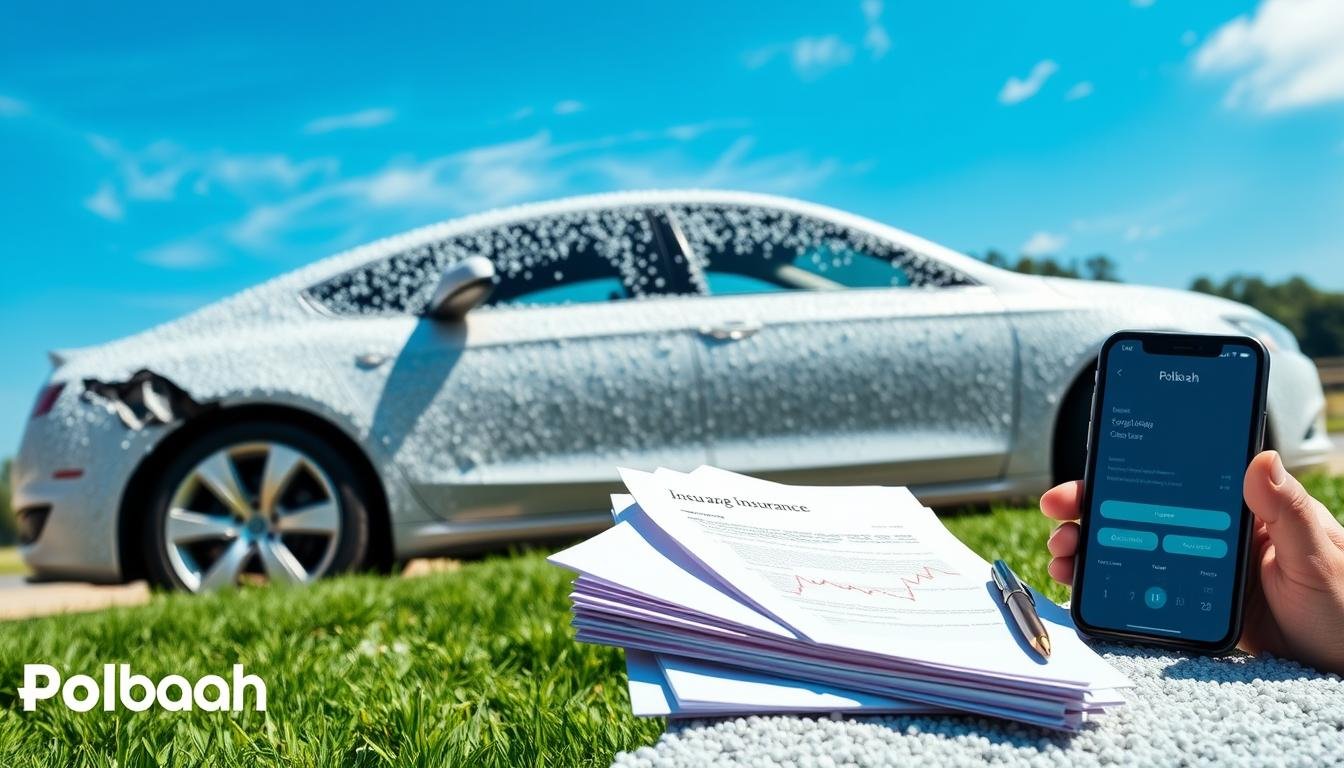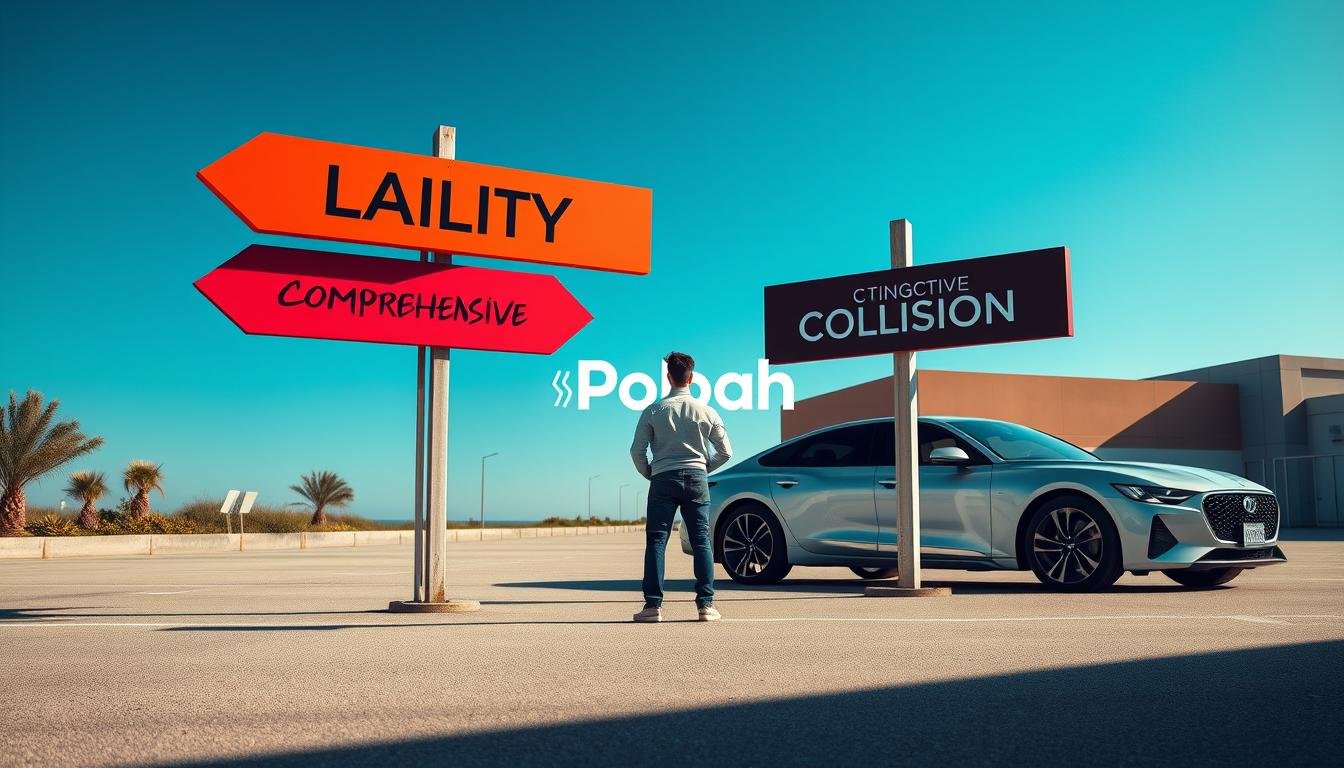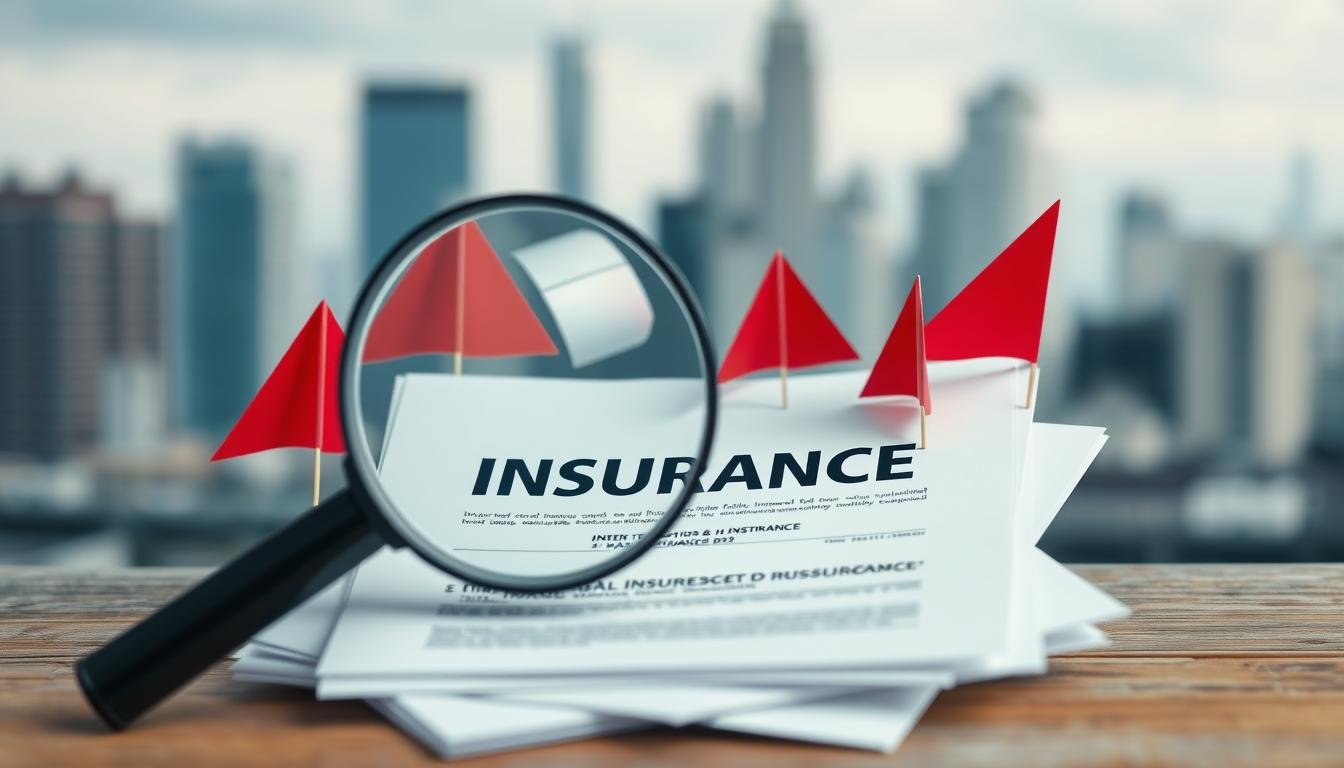Auto insurance is key for every car owner to protect their investment. It acts as a financial shield against unexpected costs from accidents, theft, or other events. Knowing how important car insurance is can help you better protect your vehicle.
In times of trouble, like a car accident, the right insurance means quick help for repairs and medical bills. This gives you peace of mind while driving.
Key Takeaways
- Auto insurance is a vital contract for vehicle owners.
- It provides financial protection against various risks.
- Understanding your coverage options enhances safety.
- Being well-informed helps you make better decisions.
- The right coverage can lead to quick reimbursements.
Understanding Auto Insurance: The Basics
Auto insurance is a must-have for car owners. It protects you from the costs of accidents, damages, or theft. Knowing how it works can give you peace of mind while driving.
What is Auto Insurance?
Auto insurance is a deal between you and an insurance company. It covers you in car-related mishaps. This includes damage to others’ property and your car’s repairs.
It’s key for every driver. It helps you deal with accidents and claims smoothly.
The Importance of Car Insurance
Car insurance is crucial. Many states require a minimum coverage. It’s not just about following the law; it’s about protecting your money.
Without insurance, accidents can cost you a lot. With it, you drive knowing you’re safe from big financial hits.
Auto Insurance Policy: What You Need to Know
Understanding your auto insurance policy is key to good coverage. Knowing the main parts of your policy helps protect you and your car. Each part works together to give you full protection.
Key Components of an Auto Insurance Policy
Your auto insurance policy has a few main parts: liability, collision, and comprehensive coverage. Each part has its own role:
- Liability Coverage: It protects you from claims for injury or damage to others’ property.
- Collision Coverage: It covers damage to your car from hitting something or someone else.
- Comprehensive Coverage: It covers damage to your car from things like theft, vandalism, or natural disasters.
Coverage Limits and Terms
Coverage limits show the most your insurer will pay for a loss. Knowing these limits is important for good protection. Key terms include:
| Term | Description |
|---|---|
| Deductible | The amount you pay before insurance starts. |
| Premium | The cost of your insurance, paid monthly or yearly. |
| Exclusions | Specific situations or incidents not covered by your policy. |

Types of Auto Insurance
It’s important to know about the different auto insurance types. Each one offers protection in unique situations. You’ll find liability, collision, and comprehensive coverage among the main types.
Liability Coverage
Liability coverage is a must-have in any auto insurance policy. It helps pay for damages if you’re at fault in an accident. It covers injuries and property damage to others. In many places, you must have a minimum amount of liability coverage.
Collision Coverage
Collision coverage helps pay for your car’s repairs after an accident, no matter who’s at fault. It’s great for newer or more expensive cars. Without it, you’d have to pay for repairs yourself.
Comprehensive Coverage
Comprehensive coverage protects against non-collision damage like theft, vandalism, or natural disasters. It’s key for keeping your car safe from many risks. It’s a must-have for many drivers.
Choosing the right mix of these coverages is crucial. It helps you stay safe on the road in many different situations.
| Type of Coverage | Protection Offered | Typical Scenarios |
|---|---|---|
| Liability Coverage | Financial protection from damages you cause to others | Accidents where you are at fault |
| Collision Coverage | Repair costs for your vehicle after an accident | Accidents involving your vehicle, regardless of fault |
| Comprehensive Coverage | Protection against non-collision related damages | Theft, vandalism, natural disasters |
Car Insurance Coverage: What It Means for You
Knowing about your car insurance coverage is key to your financial health. Each state has its own laws and needs. It’s important to understand the different types of coverage and how they impact you.
By learning about your options, you can customize your policy. This ensures it matches your driving habits and needs.
Understanding Coverage Types
Car insurance offers various types of coverage. This lets you pick what’s best for you. Here are some common ones:
- Liability Coverage: It protects you from claims by others for damages or injuries.
- Collision Coverage: It covers damage to your car from accidents.
- Comprehensive Coverage: It protects against non-accident damage like theft or natural disasters.
Add-Ons and Optional Coverages
Optional coverages can boost your insurance. Here are some useful ones:
- Roadside Assistance: It helps with issues like flat tires or towing.
- Rental Reimbursement: It covers rental car costs while your car is being fixed.
- Uninsured Motorist Coverage: It protects you if hit by an uninsured driver.
Think about your lifestyle and driving habits when choosing coverages. Things like how far you commute and the type of car you drive matter. By considering these, you can pick a policy that fits you well.

| Coverage Type | Description | Importance |
|---|---|---|
| Liability Coverage | Protects against claims made by others for damages or injuries | Essential for legal compliance |
| Collision Coverage | Covers vehicle damage from collisions | Important for protecting your vehicle |
| Comprehensive Coverage | Protection against non-collision incidents | Crucial for overall vehicle safety |
| Uninsured Motorist Coverage | Coverage for accidents with uninsured drivers | Critical for added security |
How to Compare Auto Insurance Quotes
To find the right auto insurance, comparing quotes from different providers is key. You need to look at several factors. This ensures you get the best rates while still having good coverage.
Factors to Consider When Comparing Quotes
When you’re looking at quotes, remember these points:
- Coverage Levels: Check what each policy includes. Basic liability is cheaper but offers less protection.
- Deductibles: Higher deductibles can lower your premiums. But think about if you can afford it if you need to make a claim.
- Premiums: Look at the total cost of the policy. Make sure it fits your budget.
- Insurer Reputation: Look up customer reviews and satisfaction ratings. Choose a provider known for reliability.
Finding the Best Rates
Use online tools to get many quotes quickly. This helps you see what different insurers offer. Look for discounts, like saving for having more than one policy or for safe driving. Taking your time to look at these details will help you make a smart choice for your auto insurance.

Vehicle Insurance Benefits for Drivers
It’s important to know what vehicle insurance can do for you. These benefits meet legal needs and add value to your driving life.
Financial Protection in an Accident
Vehicle insurance is key for financial protection in accidents. It helps cover repair costs, medical bills, and other unexpected costs. Without it, accidents can be very costly.
Peace of Mind on the Road
Insurance also gives you peace of mind while driving. It reduces worry about risks, letting you concentrate on the road. This is great for long drives or trips, where surprises can happen.
| Benefit | Description | Impact on Drivers |
|---|---|---|
| Financial Protection | Covers repair costs and medical bills after an accident. | Reduces financial burden and stress. |
| Peace of Mind | Assurance that you are protected in case of unforeseen events. | Enhances focus and confidence while driving. |
Car Insurance Premium: Factors That Influence Cost
Knowing what affects your car insurance premium is key to saving money. Two main things impact your premium: your driving history and the type of vehicle you own. Both are important for how insurers figure out your risk and set your rates.
Driving History and Risks
Your driving history greatly affects your car insurance premium. A clean record means lower premiums, while accidents or tickets mean higher costs. Insurers look at your past to judge your risk level and set your premium.
Type of Vehicle and Its Impact on Premiums
The type of vehicle you drive also plays a big role in your premium. Cars that cost more to fix or are stolen more often have higher premiums. Insurers use these factors to assess your risk and set your premium based on it.
| Vehicle Type | Repairs Cost | Theft Rate | Impact on Premium |
|---|---|---|---|
| Luxury Sedan | High | High | Higher Premium |
| SUV | Medium | Medium | Moderate Premium |
| Economy Car | Low | Low | Lower Premium |
| Sports Car | Very High | High | Highest Premium |
Understanding your driving history and vehicle type helps you grasp what influences your premium. This knowledge lets you make choices that could lower your insurance costs.
Introduction to Auto Insurance: Auto insurance is a contract between a vehicle owner and an insurer
Auto insurance is a deal between you and your insurance company. It sets out what each side must do. This makes sure everyone knows their part.
Understanding the Contractual Nature
Auto insurance is a promise between you and your insurance company. You pay your premiums on time. They cover you according to your policy. Knowing your policy helps avoid misunderstandings.
Responsibilities of the Vehicle Owner
As a car owner, you must keep your insurance info current. Tell them about any changes in drivers or how you use your car. Keeping this info up to date is key to getting the right coverage.
Insurance Company Obligations
Your insurance company has to do their part too. They must pay out claims that fit your policy. They should do this fairly and quickly. Knowing what they must do helps you have a better experience with them.
Conclusion
Knowing the basics of auto insurance is key to protecting your car and your money. An introduction to auto insurance shows you different coverage types. This helps you choose what’s best for you.
This knowledge lets you compare options and make smart choices. It’s based on your own situation.
Auto insurance does more than just meet legal needs. It keeps you safe financially if you’re in an accident. It also makes you feel secure when you’re driving.
Understanding your policy, like coverage limits and extra features, helps you customize your insurance. This way, you can handle risks better.
Whether you’re new to driving or have lots of experience, being proactive with your insurance saves you time and money. Being informed is your best tool when dealing with car insurance.
FAQ
What is auto insurance?
Auto insurance helps protect car owners from financial loss. It covers accidents, theft, and damage. It includes liability, collision, and comprehensive coverage to keep your finances safe.
Why is car insurance important?
Car insurance is key because it shields you from big financial hits. It’s often required by law. It helps cover costs from accidents, property damage, and medical bills for you and others.
What are the key components of an auto insurance policy?
An auto insurance policy has three main parts. Liability, collision, and comprehensive coverage. They work together to protect you in different situations.
What types of auto insurance should I consider?
Look at liability, collision, and comprehensive coverage. Liability covers accidents, collision helps with repairs, and comprehensive covers theft or fire. Choose what fits your needs best.
How can I compare auto insurance quotes?
To compare quotes, look at premiums, coverage, deductibles, and the company’s reputation. Use online tools to get quotes. Also, check for discounts that can save you money.
What benefits does vehicle insurance provide?
Insurance gives you financial safety and peace of mind. It protects you in accidents. Knowing you’re covered lets you drive without worry.
What factors influence car insurance premiums?
Premiums change based on your driving history, vehicle type, age, location, and credit score. A clean record means lower costs. High-risk factors can raise your rates.
What should I know about the contractual nature of auto insurance?
Auto insurance is a contract. You pay premiums and give accurate info. The insurer covers claims within the policy limits. Knowing this helps you interact better with your insurer.




